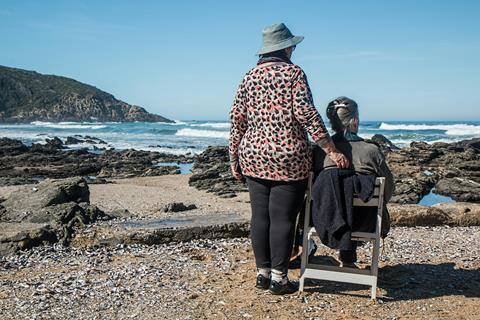The fifth commandment to ‘honour your father and mother’ takes on new meaning when parents become frail and dependent. Christopher Ash suggests nine ways you can care for them with grace

Dave and Kathy have three teenage children. The oldest is off to college this autumn. Dave’s dad died ten years ago and his mum lives nearby, enjoying good health in her early 80s.
Kathy’s mum has just died suddenly and unexpectedly. Her dad is quite frail and lives a five-hour drive away. Kathy is an only child. Her mother’s death has raised urgent questions about her dad’s care in his old age.
Some of you will recognise this because you are living it. You are “the sandwich generation”, squeezed between your own children and your aging parents. Once they cared for you, and now you are beginning to care for them.
I remember a friend of mine reflecting on this as he fed his frail mother with a spoon in her hospital bed; there was once a time when she had fed him with a spoon in his highchair; and now it was going into reverse.
The fifth commandment — to “Honour your father and your mother” (Exodus 20:12) — really begins to bite as your parents can do less and less for you and you need to do more and more for them.
How do you honour them without growing bitter and resentful? How do you honour them gladly, practically, realistically, wisely? These are big questions.
The details will be different for each of us. But here are nine principles.
- Make it a priority. God has given you other non-negotiable “neighbours” to love — perhaps a husband, a wife, a son, a daughter. But mums and dads are non-negotiable too. You do not need to agonise about whether or not to care for them. They will be high on your list.
- Care for them spiritually as well as materially. If they are not yet believers, pray earnestly that God will have mercy on them. If they are believers, ask God to keep his promise to uphold them firm to the end. Read the Bible and pray with them. They may not be willing, in which case you should respect their wishes; but do not be too shy about asking again; many will change their minds and even their hearts by the mercy of God.
- Expect this to look unimpressive. Caring for an elderly parent is not visible heroics. It may become physically unpleasant or emotionally distressing. You may have to cancel a holiday at short notice or slow your career progress. But it is a calling that God will honour even if the world does not.
- Expect this to change with time. At one stage of life, there may be virtually no need for more than occasional visits and phone calls. At another stage of life, we may need to drop everything to deal with a crisis. And much in between. Those of us — like me — who prefer life to be predictable need to be prepared to obey God in unpredictable days. Medical crises are not in our calendars.
- Expect unexpected joys too. Don’t be surprised when there is a richness as you share old memories, laugh at old happinesses, weep with them at former sorrows, or bring grandchildren to visit them. Their memories and yours can be enriched in their old age.
- Seek wisdom from God. We need God’s help to know how, what, when, and where to help. If you are married, seek wisdom as a couple, remembering that for one of you it will feel different to honour a mother-in-law or father-in-law. Often there are no easy answers.
- Value their lives to the very end. Don’t ever think or speak of them being an unwanted burden — nor should you let your parent speak of themselves that way. Don’t go near the horrors of assisted suicide, however much our society may squeeze you in that direction.
- Don’t feel guilty when you cannot help — perhaps when their medical needs are beyond you. Do what you can, gladly and willingly. It is wrong to place a parent in a care home as an easy way out of honouring them, or to get them out of the way. It is not always wrong when we are physically or medically unable to provide for their needs. If that day comes, then honour them by making frequent visits, by sitting with them, and by doing all you can to ensure that the professional care they are receiving is kind and capable. It is a beautiful thing when the staff of a care home notice this. In the closing months of my own mother’s life, I remember one of the carers saying to my wife, “You are like a daughter to her” — as indeed she was in the kindness and fondness of her love.
- Look ahead. Let care for your parent remind you that one day this will be you. Use these days as preparation for yourself, if God grants you to live into old age.
May God help you to honour your aging parents well.
Christopher Ash is the author of Not Old, Not Young, Not Done: Following Jesus in your 50s and 60s (The Good Book Co).



































No comments yet